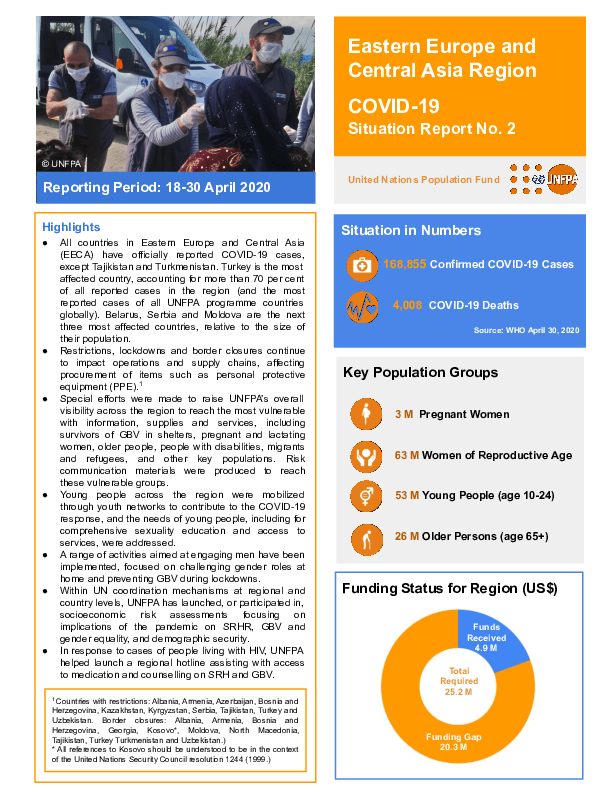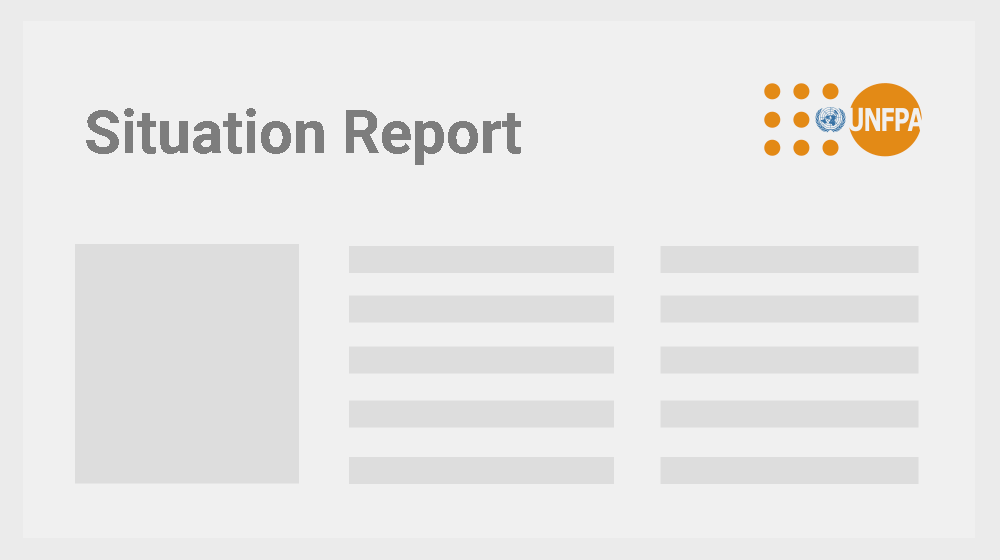"The UNFPA response in the region aligns with the 2030 Agenda, the 2020 WHO Global Strategic Preparedness and Response Plan, the Inter-Agency Standing Committee Global Humanitarian Response Plan, and the UNFPA COVID-19
Global Response Plan."
"Coordination and partnerships
Playing a key role in new and existing coordination structures, UNFPA is a member of the UN interagency coordination mechanisms, primarily the UN Country Team and other related forums such as the UN coordination COVID-19 groups, including the Security Management Teams."
"UNFPA also leads several mechanisms that bring together governments, civil society and other UN agencies, such as the Emergency Preparedness Group on COVID-19, SRH working groups and the coordination body GBV in emergencies. Across the region, UNFPA country offices are working in close collaboration with the various line Ministries, including Ministries of Health (MoH), Labour and Social Policy, Prime Minister offices, and donor and development partners. National governments are managing the overall coordination. In Tajikistan, under the leadership of UN regional coordination, UNFPA is coordinating a group of UN medical doctors consisting of staff members of WHO, World Food Programme, International Organization for Migration, UNAIDS, UNICEF and UNFPA to support the UN coordination team in ensuring staff safety and security in light of the pandemic. This also contributes to stronger visibility of UNFPA among its UN partners."
"Continuity of SRH Services and interventions, including protection of health workforce
UNFPA is addressing continuity of SRH services by:
- Adapting and translating the newest international guidelines and technical documents related to SRH in each country, so that national health experts and service providers have immediate access to the most updated recommendations on SRH services in the COVID-19 context. UNFPA promotes and strengthens south-south cooperation between the countries in the EECA region;
- Mobilising technical and financial resources to set up a telemedicine programme in the region, which will enable health service providers in EECA to remotely deliver family planning counselling, antenatal and postnatal care and other services based on countries’ priorities and resources. This innovative intervention will have significant impact for all women and girls, especially in rural areas, and still requires external financial support; and
- Continuing its extensive work for the provision of PPE and hygiene kits to pregnant women, older people, people with disabilities and SRH and GBV-related service providers, and reproductive health kits to the health facilities."

